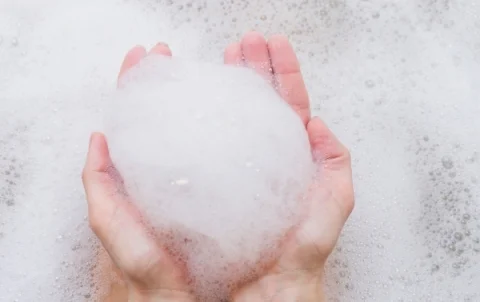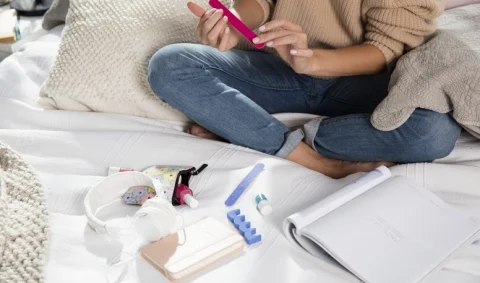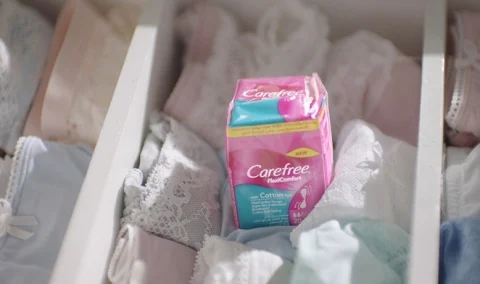
Female period: Vaginal Discharge and Signs of Puberty
As your body prepares to enter adulthood, you experience many changes. You might find some vaginal discharge or wetness in your intimate area, and this can lead to discomfort and confusion. But don’t worry. This is perfectly normal.
You will also notice some other changes in your body. From developing breasts to growth spurts, your body will try to adapt for a new life. This is also an indication for you to start using panty liners so that you are not caught off guard if your menstruation cycle begins, or you experience spotting.
Menstrutation: Your first Period
Perhaps the most annoying thing about the first period is that it comes unannounced. No girl can really tell when it’s going to happen. So how can you be prepared? First, know that this is going to happen and then pay attention to the signs. Getting your period, or menstruating is a natural body activity directly linked to the female reproductive cycle.
Every month or so, your uterus builds up tissue to nestle a potential embryo. When no fertilization occurs, the tissue is no longer necessary, and the uterus sheds it in the form of a menstrual period. Usually, periods last between 3 to 7 days. Typically, you should expect your period about two years after your first signs of puberty appear. Whether you were an early or late bloomer, the only way to know if your period is about to come is by listening to your body.
Keep track of your pubertal changes, like when you first developed breasts or body hair. This will help you get a rough estimate of your awaited event’s date. Pay special attention to vaginal discharge. It’s a sign that your period is coming within the next few months!
Experiencing a Late Period and your First Menstrual Cycle
Although all girls will start getting their period sometime during puberty, every one of them will live this experience differently. The average age for a girl’s first period is between 10 and 14 years. However, some girls will get it as early as 9 years of age, while others as late as 17 and that’s perfectly okay. Remember: it’s all about the right timing for you. However, if you have any concerns, don’t hesitate to share them with your doctor.
Generally, the first period comes unexpectedly. But there isn’t any reason to worry about having your first period as it is totally natural. It’s just a few drops of blood, so there’s no need to wear pads “just in case”. You can simply keep some in your bag, and if you do get your period at school and you’re not prepared, look for a sanitary napkin at the infirmary.
You can use a panty liner instead, which keeps you clean from vaginal discharge as well. The first periods are rarely painful. Most of the time, the blood you shed is rather brown-black. Again, this is perfectly normal, and you have nothing to worry about.
The first periods don’t usually have an ovulation cycle before them. After you get your first period, don’t panic if the next one doesn’t occur after 28 days. For several months, your period may be erratic or even absent. Gradually, your cycles become more regular, a sign that your hormones have stabilized and ovulation has taken its course.
Starting an Intimate Personal Hygiene for Teen Girls
Just like the right outfit makes you look good; the right feminine hygiene routine makes you feel good. So how should you care for the most sensitive area of your body? And how can you stay fresh all day long? When you hit puberty, plenty of things start happening: monthly periods to clean your womb, regular discharge to clean your vagina.
Although natural, these secretions may cause discomfort if you don’t adopt proper hygiene habits. Too much pubic hair and too little cleanliness can cause bacteria build-up around your vagina, hence producing embarrassingly unpleasant scents. Moreover, the bacterial build-up could lead to skin irritations and infections.
5 Intimate Hygiene Tips To Keep You Fresh And Clean
Your vagina already cleans itself with the help of vaginal discharge. So what you need to take care of is the vulva, the area outside your vagina. This sensitive area is in direct contact with underwear, secretions, and bacteria; hence requires special care. Follow these 5 simple tips for better intimate hygiene:
Wash daily: Typically, you should wash your intimate parts daily with an intimate wash. If you’re exercising or swimming, make sure to wash immediately afterwards to avoid irritations.
Use the right product: Forget about scented soaps and lotions. Use intimate washes specially designed to care for your sensitive area. You can choose CAREFREE® Original Intimate Wash or CAREFREE® Aloe Intimate Wash for extra sensitive skin.
Dry off: Don’t forget to dry off with a clean towel to avoid moisture build-up, a major cause of fungal infections.
Use panty liners daily: Pantyliners keep you dry and feeling fresh, clean and carefree all day.
Use intimate wipes on the go: Intimate wipes like CAREFREE® Duo Effect Intimate Wipes with Green Tea & Aloe Vera are easy to use, gentle on the skin and help you stay fresh and clean wherever you are.
Vaginal discharge is completely normal but can stain your panties. A panty liner helps keep the panty clean, and you can just discard and change liners during the day for an always-fresh feeling. Keeping a back-up in your bag is helpful.
How To Manage Pubic Hair
Whether you want to trim your pubic hair or remove it partially or totally, here are your options:
Trimming: This option consists of shortening your pubic hair length using specific trimmers or scissors. Trimming is best done when pubic hair is dry.
Shaving: Shaving is easy and completely painless as long as you do it correctly. Make sure to use moisturizing shaving cream, a flexible razor, and to shave in the same direction of hair growth, and then in the opposite direction. The only disadvantage is that hair grows back within a few days.
Depilatory cream: With a depilatory cream, hair is removed quickly and painlessly, but grows back within a few days. Choose a brand specifically designed for intimate areas, and test it on a small skin surface to check for possible allergic reactions.
Halawa or wax: Painful yet effective method. Whether you’re using ready-made wax strips or homemade Halawa (sugar, water and lemon mixture), your skin will feel smoother, and the results will last longer. Make sure the wax or Halawa is not too hot to avoid skin burns. Don’t forget to use oil to remove excess wax and keep the area moisturized.
So here you go, now you’re equipped with all the knowledge you need to deal with your first period and stay clean and fresh with Carefree® Intimate Care products and panty liners!
Note: This article is for informational purposes only and does not constitute medical advice.




